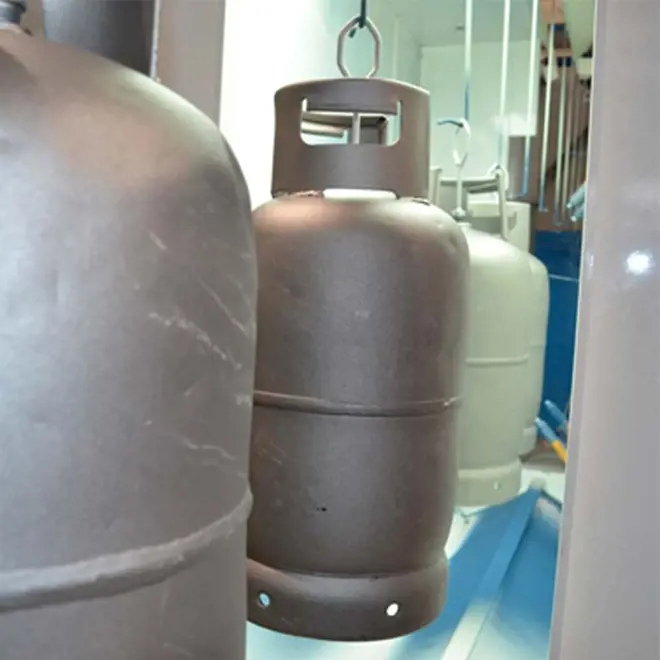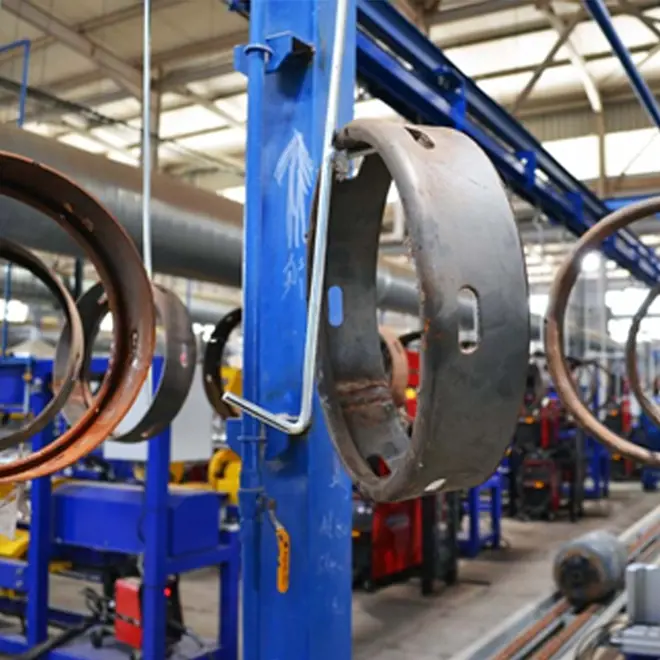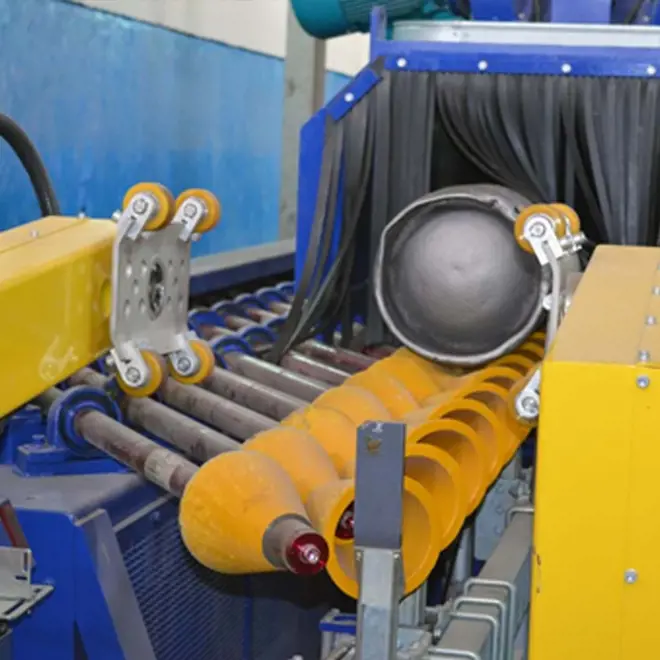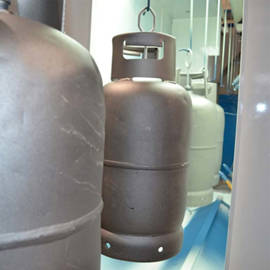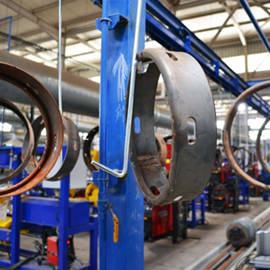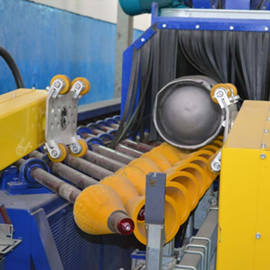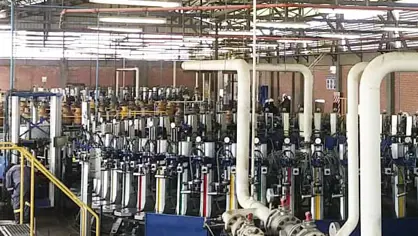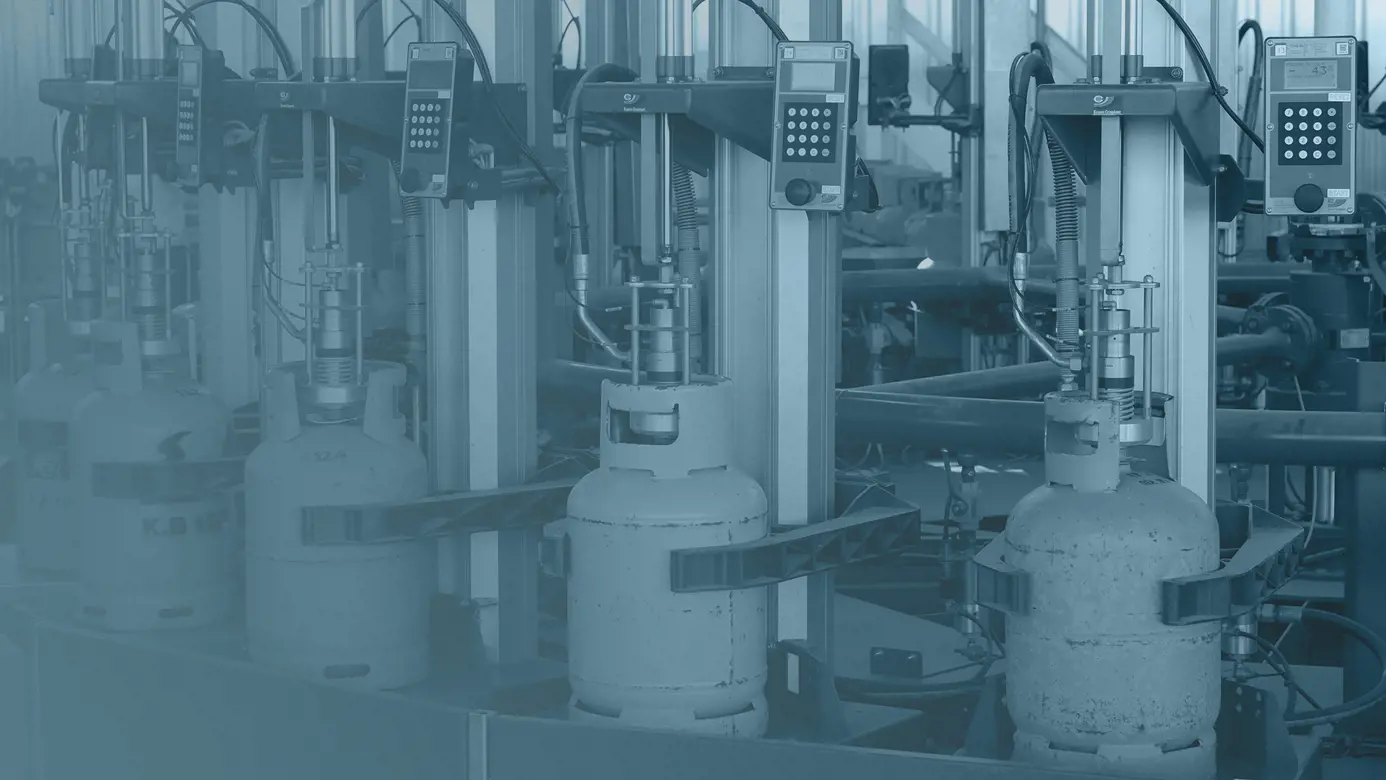Case: Petrogas, Egypt (2016)
Customer
Petroleum Gas Co. (Petrogas), Egypt
The customer's challenge
To provide Petrogas' customers with reconditioned 30L and 60L cylinders. One of the customer's challenges has been to remove the built up residue, naphtha, that accumulates on the bottom of the cylinders.
Our solution
To design and execute a state-of-the-art hot and cold repair reconditioning plant in Egypt to meet the customer's demand for a high-capacity reconditioning plant (150 cyl/hour) able to handle every reconditioning task possible for 30L and 60L cylinders.
The outcome
A successful state-of-the-art reconditioning plant with new inventions specifically tailored to the Egyptian market.
Scope of supply
- Cold repair area (e.g. base ring and shroud straightening)
- Hot repair area (de-denting, collar and base ring cutting and welding)
- Pressure testing area
- Shot blasting area
- Painting area (powder painting plant, surface cleaning cabin)
- Finishing area
- Scrapping area
If the cylinder cemetery is where scrapped cylinders go to die, the new Petrogas reconditioning plant in Mostorod, Egypt is cylinder heaven. Damaged cylinders go in and bright, shiny new-looking ones come out. This plant is equipped with every piece of state-of-the-art reconditioning equipment possible: hot and cold repair, paint booths, straightening etc. Highly efficient, the plant reaches an impressive capacity per hour of a staggering 150 cylinders that are being brought back to life and given at least one more round!
Great investment means big business
There are numerous benefits of reconditioning cylinders and one of them is the large profit that may be hiding inside those discarded cylinders. Reconditioning is only 25% the price of a new cylinder, so it doesn’t take a math genius to figure out that a lot of money may be saved by reconditioning the cylinders otherwise meant to be scrapped. Surely this is a tangible reason to recondition! Petrogas decided to turn its garbage into a profit when they invested in a high-tech reconditioning plant.
State-of-the-art, tailor-made reconditioning equipment
The Egyptian plant is one of kind in a number of ways. First of all the plant is equipped with the naphta removal machine - made for internal cleaning of LPG cylinders - specially designed and engineered by Kosan Crisplant (today known as MAKEEN Energy) for Egypt and non-existent anywhere else in the world. The issue with naphta has been specific to Egypt since all types of fuel have been transferred to the country through the same piping in the past. This resulted in the mixture of residue from the pipes being transferred to the cylinders requiring special equipment to properly remove it. Now, however, each product has its own transfer line but the cylinders still contain some naphta. Secondly, for the very first time in the Egyptian reconditioning process, the dot marking machine has been introduced. It engraves a serial number and the date of repair on each foot ring on every cylinder as a means to keeping track of it. Finally, this plant is the newest worldwide and it has the largest capacity of 150 cylinders per hour in the Middle East and Africa.
All good things come to those who wait
The remarkable Egyptian plant that employs a total of 160 people is fit to perform every task regarding the repairing of LPG cylinders. Our agent in Egypt attests to the fact that the project didn’t happen overnight, though. In fact, it faced several challenges before becoming the facility that it is today: In 2009, the initial negotiations regarding the entire project began, but the economic situation in Egypt after the 2011 and 2014 revolutions posed long-winded delays. On top of that, there was the probability of losing the project because of the absence of funds from the government. However, due to persistency, hard work and all parties co-operating as one and according to one common goal, trials on the plant were made from November 2015 and it started operating officially in February 2016.
Why is reconditioning important?
Why not just scrap the damaged cylinders, one might ask? Is it worth all the hassle of repairing, welding and straightening? But reconditioning offers a variety of benefits, not only to the owner of the reconditioning plant, but also to the consumer and to the environment in general. Reconditioning obviously decreases the financial burden of constantly having to buy new cylinders, since reconditioning is only a fourth of the cost of buying a new cylinder. And well-kept cylinders have a life span of an astounding 50 years - putting off the acquisition of new cylinders potentially for decades. It keeps the circulating cylinders in a safe and good condition for the end users as well as ensuring the recycling of steel used to make the cylinders instead of wasting the material. Moreover, reconditioning means fewer mistakes and thus stops in the filling hall, which increases capacity, which in turn increases bottom line figures.

